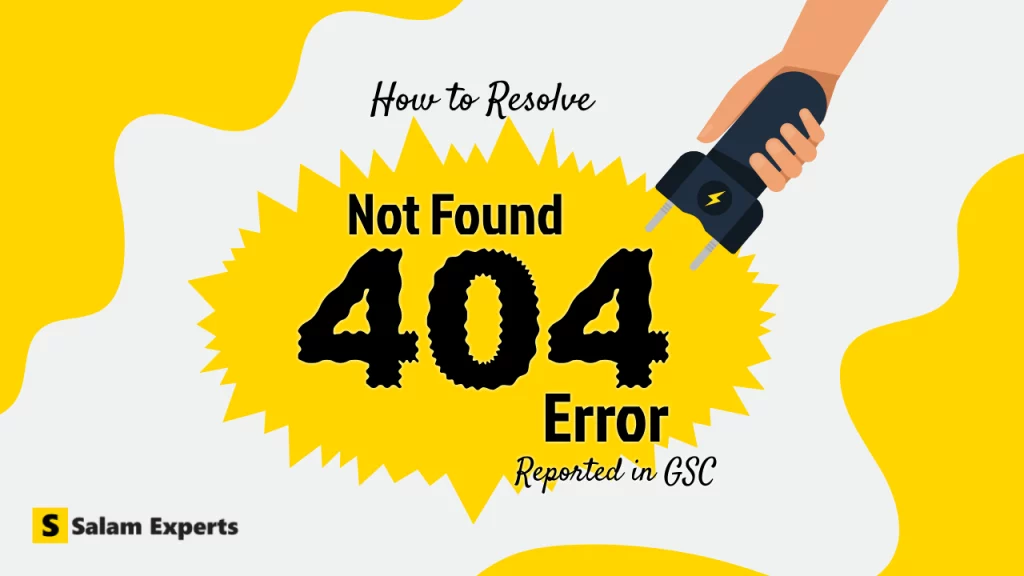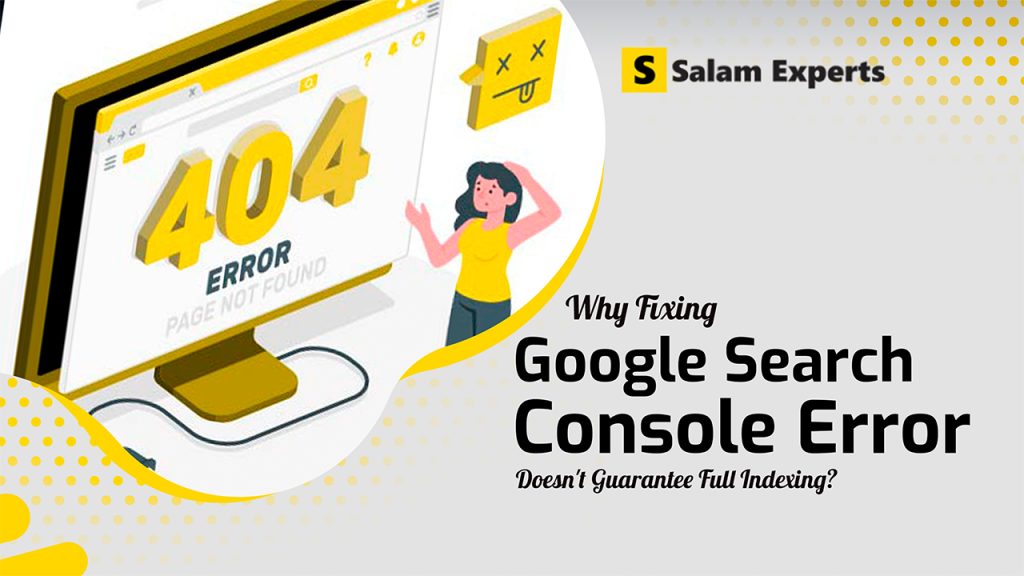Mastering Keyword Research: Everything You Need to Know

Most think keyword research means typing words into a tool and picking high-volume terms. I used to think that too—until years with Salam Experts showed me how the right keywords turn struggling sites into traffic magnets.
In this guide, I’m not just giving you theories or recycled tips, you’re getting my exact process, shaped by real campaigns, real results, and the kind of insights you only get from doing this day in, day out. By the time you’re done reading, you’ll know exactly how to find keywords that rank, attract the right audience, and actually grow your business.
Why Keyword Research Matters More Than Ever
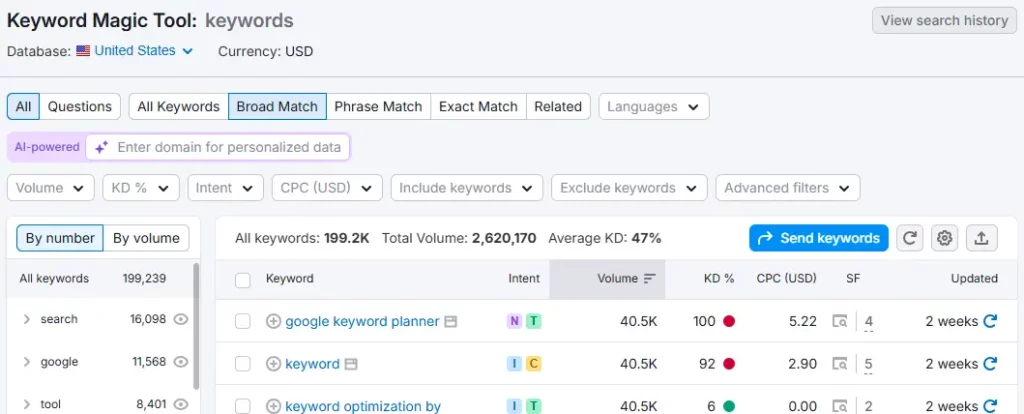
In 2025, guessing keywords is a shortcut to failure. Google’s AI-powered updates reward intent-driven, high-quality content—meaning your keywords must align with what people search and why they search it.
As Ahrefs points out, “90% of pages receive no organic traffic, and keyword research is key to avoiding that fate.” This shows just how critical solid keyword research is to gaining meaningful visibility online.
Here’s why it’s critical now:
- Massive Competition – 7.5M+ blog posts go live daily; wrong keywords = zero visibility.
- Smarter Algorithms – Intent beats volume; guesswork doesn’t rank.
- Rising Ad Costs – Organic keyword wins save thousands in PPC.
- Untapped Long-Tails – 70% of search traffic comes from them; most businesses ignore them.
Done right, keyword research doesn’t just help you get traffic—it connects your content with the right people, at the right time, for the right reasons.
What is Keyword Research?
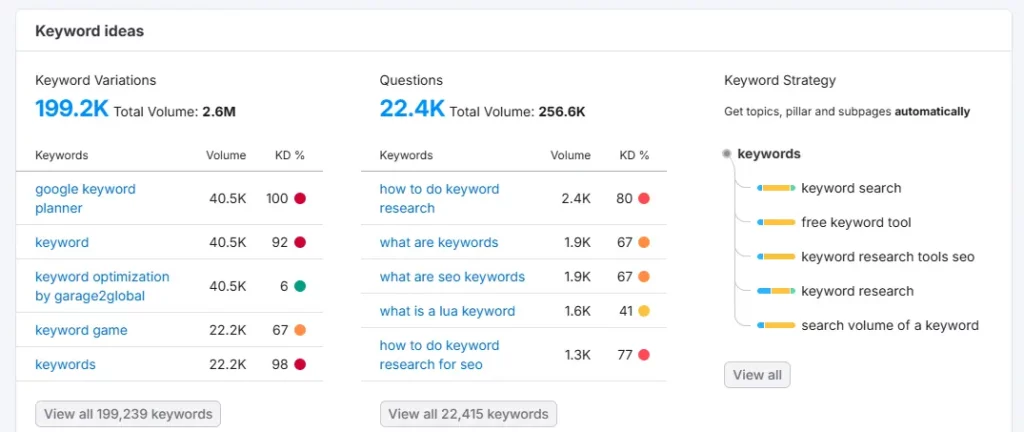
Keyword research is finding and analyzing the words and phrases people search for online, so you can create content they actually want to find.
It’s not just about picking popular terms—it’s about understanding:
- What people want
- Why they’re searching
- How competitive each term is
The right keywords connect your content with the right audience, making every blog post, product page, or video more discoverable.
Not all keywords are the same. Understanding their types helps you target smarter, not harder:
1. Seed Keywords
- 1-2 words
- Broad and high search volume
- Harder to rank for
- List ItemExample: shoes, marketing
2. Long-Tail Keywords
- 3+ words
- More specific and lower search volume
- Easier to rank for
- Example: best running shoes for flat feet
3. Branded Keywords
- Include a brand name
- Example: Nike shoes, Apple iPhone
4. Geo-Targeted Keywords
- The user is searching for products, services, or information related to a specific geographic location.
Example: best cafes in New York, plumber near me, digital marketing agency in Toronto
Knowing these categories helps you balance reach, competition, and relevance.
Understanding Search Intent
Search intent is why someone is searching. If you match your content to the right intent, your chances of ranking and converting increase.
The main types are:
- Informational – The user wants to learn something (“how to do keyword research”).
- Navigational – The user is looking for a specific site or brand (“YouTube”).
- Commercial – The user is comparing options before buying (“best SEO tools”).
- Transactional – The user is ready to buy (“buy Ahrefs subscription”).
Get this wrong, and even the best keywords won’t perform. Get it right, and you’ll attract exactly the audience you want.
Common Keyword Research Challenges & Mistakes
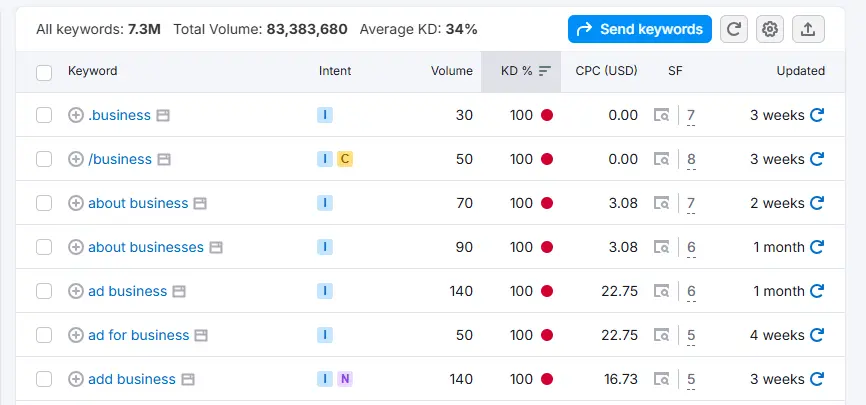
Many marketers trip over these:
- Chasing only high-volume keywords, ignoring intent
- Overwhelmed by too many options, losing focus
- Skipping SERP analysis, missing realistic ranking chances
- Ignoring long-tail keywords that convert better
- Not updating your keyword list to match changing trends
- Keyword cannibalization: targeting same keywords on multiple pages
Step-by-Step Keyword Research Process
Follow this simple process to find keywords that rank and convert:
- Define Your Goals
Decide what you want—more traffic, sales, leads, or brand awareness. Your goals shape the type of keywords you target. - Brainstorm Seed Keywords
Start by listing basic terms related to your niche. Think like your audience and explore sources like Google’s Related Searches, Reddit discussions, niche forums, and YouTube’s auto-suggest. For example, typing your niche keyword into YouTube’s search bar shows popular questions people ask. - Use Keyword Research Tools
Free: Google Keyword Planner, Google Trends, AnswerThePublic
Paid: Ahrefs, SEMrush, Moz, KWFinder
These reveal search volume, difficulty, and related keyword ideas. - Analyze Metrics
When evaluating keywords, focus on:- Search Volume: How often people search, affected by trends and location.
- Keyword Difficulty (KD): How hard it is to rank based on current top pages.
- Competition Level: How many advertisers bid on this keyword, indicating commercial value.
- Study Competitors
See what keywords your competitors rank for and find gaps you can target. - Organize into Clusters
Group related keywords together to cover a topic in depth. - Prioritize and Plan
Pick keywords that balance relevance, traffic potential, and ranking difficulty. - Build and Refine Your Keyword List
Combine your seed keywords, tool suggestions, and competitor insights into one master list. Group similar keywords, remove duplicates, and prioritize based on relevance and difficulty. - Final Validation: Will These Keywords Drive Real Results?
Finding and prioritizing keywords is only part of the job. To ensure your efforts pay off, run your shortlisted keywords through this quick results-check.
| Step | Question to Ask | Why It Matters |
|---|---|---|
| Search Intent | Does this keyword match the user’s buying stage or goal? | Ensures your content attracts the right audience |
| SERP Competition | Can you realistically outrank the current top results? | Avoids targeting overly competitive keywords |
| Test Engagement | Do your initial posts or ads get clicks and conversions? | Validates the keyword’s potential to drive traffic and leads |
This final filter helps you focus on keywords that don’t just rank — but actually bring targeted traffic, leads, or sales. As this process helped us rank our clients in Google’s top 10 for over 20,000 keywords — worth about $756K/month in ad value.
Using AI Chatbots for Keyword Research
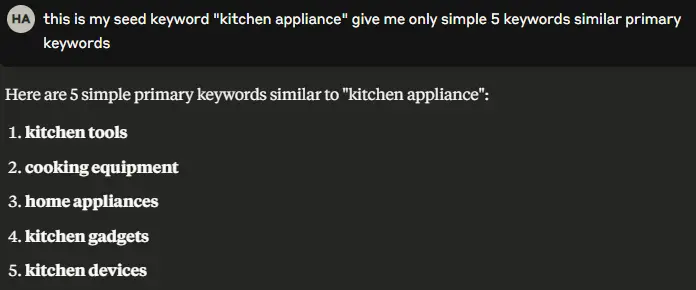
AI chatbots like ChatGPT, Gemini, and Claude are now powerful assistants for keyword research. They can quickly:
- Brainstorm seed keywords around your niche or product.
- Suggest topic clusters and long-tail variations.
- Provide content angle ideas you might miss with manual research.
Limitations:
- They don’t give accurate search volume or competition data.
- Sometimes they suggest irrelevant or low-value keywords.
- They can “hallucinate” trends or metrics that aren’t real.
Best Practice:
Use AI chatbots for idea generation and topic expansion, then run those keywords through a dedicated tool (like Ahrefs, SEMrush, or Google Keyword Planner) to validate their potential. This combination saves time and uncovers hidden opportunities while keeping your keyword strategy data-driven.
What Makes a Keyword Research Tool Worth Using?
Before comparing tools, here are the key factors that actually matter:
- Data Accuracy – Reliable search volume and difficulty metrics help you avoid wasting time on misleading keywords.
- Depth of Insights – Look for features like SERP analysis, competitor keyword tracking, and content gap suggestions.
- Ease of Use – A clean, intuitive interface saves hours of learning curve.
- Filtering & Sorting – Being able to refine results by location, device, or search intent speeds up decision-making.
- Value for Money – Whether free or paid, the tool should offer real, actionable insights that justify your time or cost.
With these criteria in mind, here’s a side-by-side look at the best free keyword research tools so you can see which fits your needs.
| Tool Name | Best For | Key Feature | Limitations |
|---|---|---|---|
| Google Keyword Planner | Beginners & PPC users | Free, accurate Google data, search volume ranges, location targeting | Limited to Google Ads users, broad ranges for low-volume keywords |
| Ahrefs Keyword Generator | Competitive keywords | 100 keyword suggestions, difficulty score, data from multiple search engines | Limited to 100 keywords per search |
| Semrush Keyword Magic Tool | Comprehensive SEO research | Keyword groups, intent classification, SERP features | 7 to 10 queries in free plan |
| Ubersuggest | SEO beginners | Keyword suggestions, difficulty score, content ideas, limited free searches | Limited data compared to paid tools |
| KeywordTool.io | Long-tail keyword discovery | Works for Google, YouTube, Bing, Amazon, etc | Search volume data only in paid plan |
| AnswerThePublic | Content ideation | Visual keyword map, question-based queries, related searches | 3 free searches per day |
| KWFinder | Finding low-competition keywords | Easy-to-use interface, keyword difficulty score, SERP analysis, location-based research | Limited daily searches in free plan |
Pro Tip: Free keyword research tools are great for beginners or small-scale projects, but they often come with data limits, less precise search volumes, or missing competitive metrics. If you find yourself running multiple campaigns, needing more accurate data, or working in a highly competitive niche, upgrading to a paid tool can deliver a much higher ROI.
Advanced Keyword Research Techniques
- Identify “Content Gaps” in Competitor Sites
- Use tools like Ahrefs, Semrush, or SimilarWeb to see which keywords competitors rank for that you don’t.
- Prioritize low-competition, high-intent gaps where you can create better content.
- Leverage Search Intent Layers
- Go beyond informational, navigational, and transactional.
- Spot micro-intents (e.g., “best DSLR camera under $500 for beginners” = price + use case + audience).
- Mine “People Also Ask” and Related Searches at Scale
- Export these queries in bulk with tools like AlsoAsked or AnswerThePublic.
- Cluster them into content themes for topic authority.
- Analyze SERP Features for Opportunity
- See if your keyword triggers featured snippets, video results, or “Top Stories.”
- Target these formats specifically to win more real estate.
- Reverse-Engineer Backlinks via Keywords
- Find keywords that consistently attract backlinks for your competitors.
- Build better-than-theirs resources targeting the same keywords.
- Use Seasonality and Trend Data
- Combine Google Trends with historical search volume data.
- Target emerging keywords 1–2 months before peak demand.
- Extract Keywords from On-Site Search
- Check what visitors search for inside your own site.
- Often reveals long-tail, high-conversion terms you won’t find in public tools.
- Blend Paid Search Data with SEO
- If you run PPC, analyze high-CTR, low-CPA terms and bring them into organic targeting.
- Look for “Zero-Click” Keywords Worth Owning
- Even if the SERP steals clicks, these keywords can be authority builders if you dominate the answer box.
- Map Keywords to the Buyer’s Journey
- Assign keywords to awareness, consideration, and decision stages.
- Build interconnected content to lead users toward conversion.
Keyword Research for Different Platforms
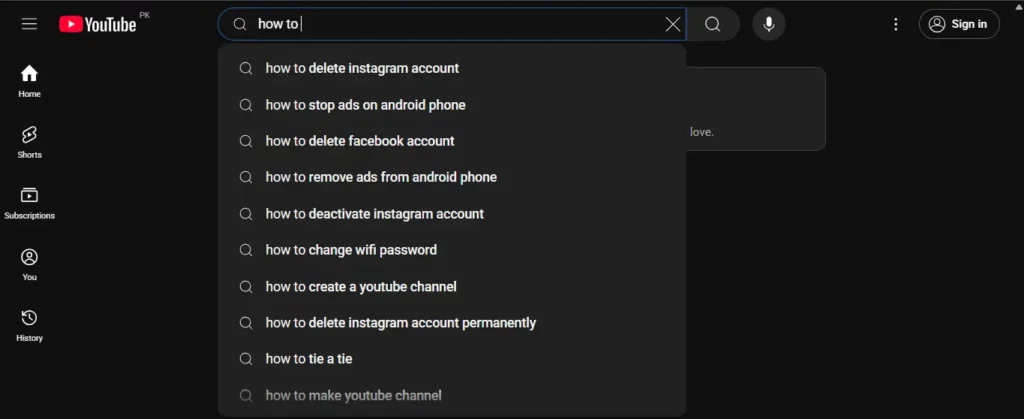
Different platforms require different keyword strategies. Here’s how to adapt:
- Google SEO – Focus on search intent, long-tail keywords, and topic clusters for organic rankings.
- YouTube SEO – Target keywords with strong search demand on YouTube; optimize titles, descriptions, and tags.
- E-commerce (Amazon, Etsy) – Use product-focused keywords, including descriptive and feature-based terms.
- Local SEO – Combine your service keywords with location terms (“plumber in Austin”).
- Social Media (Pinterest, TikTok) – Research trending hashtags and niche-specific phrases for visibility.
- Consider Mobile Search Behavior – With most searches now on mobile, focus on keywords that fit voice search, local queries, and concise phrases. Mobile users often search differently, so tailor your keyword research accordingly.
Each platform has its own audience behavior, so customize your keyword research to match it.
Strategic Keyword Placement
Use your top keywords in critical places like page titles, headers (H1, H2), meta descriptions, URL slugs, and naturally throughout your content. This boosts your page’s relevance and ranking potential.
Track Keyword Performance Regularly
How to Turn Keywords Into an SEO Content Plan

Finding keywords is step one—turning them into a traffic-driving content plan is where results happen.
- Group by Topic – Cluster related keywords so each group can be targeted by a single, comprehensive page or blog post.
- Map to the Funnel – Use informational keywords for awareness, comparison keywords for consideration, and transactional keywords for conversions.
- Assign Content Types – Decide if a keyword works best for a blog post, landing page, guide, or product page.
- Prioritize by Impact – Start with keywords that balance good volume, achievable difficulty, and strong intent.
- Plan Internal Linking – Connect related content to boost authority and guide users deeper into your site.
A solid content plan ensures your keywords actually translate into visibility, leads, and sales—not just a list in a spreadsheet.
Closing Thoughts
Keyword research is the foundation of every successful SEO strategy. It’s not just about finding popular terms, but understanding your audience’s intent, competition landscape, and how to deliver real value. When done right, keyword research transforms your content from invisible to irresistible—connecting you with the right people at exactly the right moment.
Remember, this is an ongoing process. Search trends evolve, algorithms change, and your business grows. Keep refining your keyword strategy, stay curious, and leverage the right tools and techniques to stay ahead.
Start applying these insights today, and watch your website’s traffic, engagement, and conversions soar.

Ready to turn these insights into real SEO wins?
I’m Ready to RankAuthor
-

We are a digital marketing agency with over 17 years of experience and a proven track record of helping businesses succeed. Our expertise spans businesses of all sizes, enabling them to grow their online presence and connect with new customers effectively.
View all posts
In addition to offering services like consulting, SEO, social media marketing, web design, and web development, we pride ourselves on conducting thorough research on top companies and various industries. We compile this research into actionable insights and share it with our readers, providing valuable information in one convenient place rather than requiring them to visit multiple websites.
As a team of passionate and experienced digital marketers, we are committed to helping businesses thrive and empowering our readers with knowledge and strategies for success.




